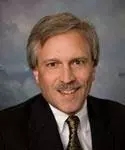Todd discusses how our society treats the poor, hungry, and homeless, and what those in our community can do to make a difference.

How do you feel we, as a society, treat the poor, hungry, and homeless in Greensboro?
In the most recent mid-term election there was a lot of talk – and advertising – about certain issues. What are some issues that received little or no talk or advertising in these elections? Poverty, hunger, and homelessness.
Why? Likely because the people in these circumstances wield little power. Elections are about power – who has it and who doesn't – and, in our society, power is nearly synonymous with money.
Greensboro Statistics on Dangerous Rise
If candidates for office don't talk about these issues, who will? Folks at Greensboro Urban Ministry (GUM) and similar agencies. GUM's November 2014 e-newsletter provided some statistics from a Brookings Institute's study on poverty in our country following the current Great Recession – and they should cause us all to pause:
- Greensboro is tied for 10th place in the nation for growth in the percentage of poor.
- We are in 6th place in the nation for the fastest growing rate of poverty.
- We took first place for growth in suburban poor.
- We rank 4th place in the nation for food insecurity – one in five of our neighbors (one in four if they are children) do not know from where their next meal will come.
The e-newsletter calls this a "proliferation of poverty" and accurately summarizes these statistics with "Simply put, our neighbors are struggling."
GUM talks about poverty, hunger, and homelessness. Who else talks about these issues?
- King Solomon, who wrote "Speak out for those who cannot speak, for the rights of all the destitute. Speak out, judge righteously, defend the rights of the poor and needy." (Proverbs 31: 8-9, NRSV)
- Prophets such as Jeremiah, who talks about restoring "the health of my poor people" (Jeremiah 8:22, NRSV), and Isaiah, who stresses the moral imperatives of justice, sharing, fighting oppression, and practicing compassion (Isaiah 56: 6-7, NRSV).
- Religious leaders such as Gandhi, who said "Poverty is the worst form of violence."
- Jim Wallis, a pastor, the founder of the faith-based advocacy group Sojourners, who frequently says "A budget is a moral document" because it reflects the morals of those who crafted and adopted it.
- Pope Francis, in meeting with students of Jesuit schools, saying "Poverty is the flesh of the poor Jesus, in that child who is hungry, in the one who is sick, in those unjust social structures."
I recently came across an article by Michael C. McCarthy, a Jesuit priest and professor, who used a term I'd never heard before – "preferential option for the poor." This phrase, a part of Catholic teachings on social justice, is explained by the author as "the principle that a society or an institution must ultimately be judged by how it treats its most vulnerable members, not those with access to power and privilege."
A "preferential option for the poor" – what a great phrase to summarize the quotes I've cited! Every person I've listed challenges us to become our best selves, to care for "the least of these" (Matthew 25: 40, NRSV).
Framing Jesus' Mission
Many of us are preparing to celebrate the birth of a famous prophet, Jesus. How Jesus kicks off his public ministry is incredibly significant, because it frames all of his mission. Teaching in the synagogue at Nazareth, Jesus reads from Isaiah 61, saying God "has anointed me to bring good news to the poor" then concludes with his own words,"Today this scripture has been fulfilled in your hearing." (Luke 4: 18, 21, NRSV).
Would Jesus espouse a "preferential option for the poor"? I believe he would. Just look at those with whom he ate, lived, taught, and preached – the sick, the oppressed, the outcast, those of other faiths, and of course, the poor. What might Jesus say if he walked among us today? I believe his words would be very similar to those of Pope Francis.
Francis has called out nations and economic systems for letting individual poverty become structural poverty, and has delivered a very uncomfortable message to those of us in the advanced world. Likewise, Jesus called out the civic and religious institutions of his time, doing so even though he knew the penalty was death by crucifixion.
Francis' message is especially uncomfortable to those with great power or vast wealth. This message echoes the command Jesus gave to a rich young man to "sell your possessions and give the money to the poor" – which was not the message the young man wanted to hear (Matthew 19:21-22, NRSV).
Time to Reflect
This holiday season, please take time to reflect on the phrase a "preferential option for the poor," and assess how well our society treats our neighbors, the most vulnerable brothers and sisters among us. And what if your reflection and assessment causes you discomfort? Then realize your heart has been stirred to care for "the least of these" – and act on this by donating time and money to agencies like GUM, and by speaking out against injustice in our society.
Sincerely yours,;

Todd L. Herman
*Look for this article in the Triad Business Journal and the News & Record later this month.
To get involved, call GUM at (336) 553-2642 or click here.





